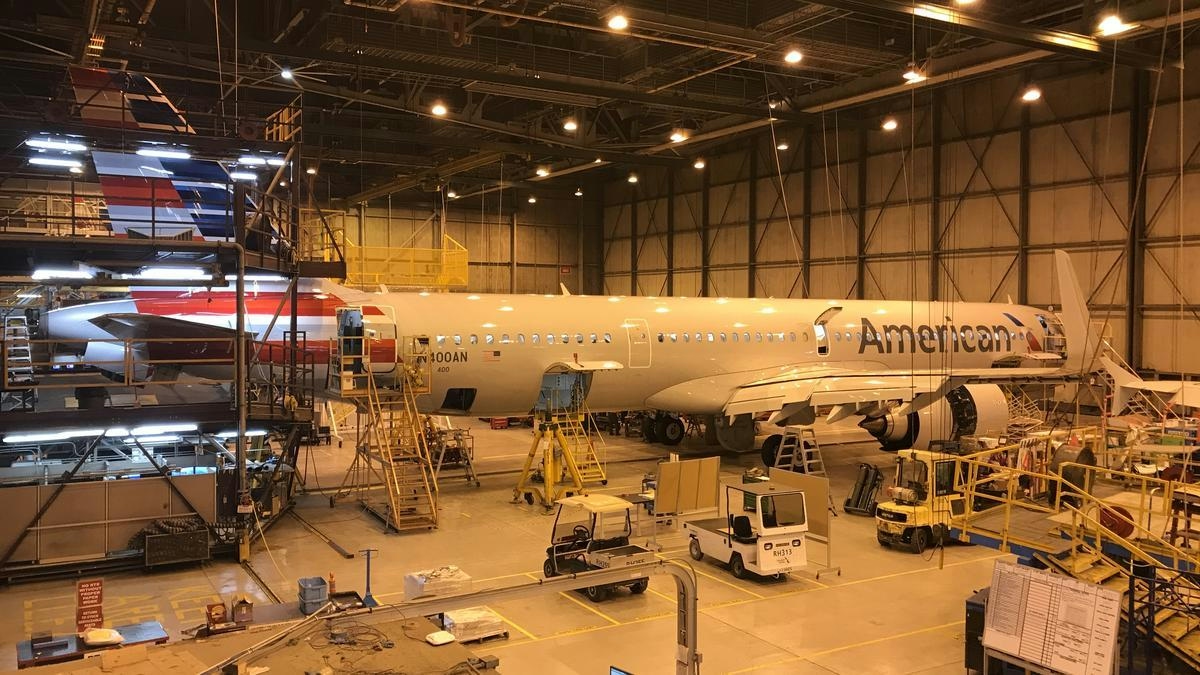AeroGenie — Your Intelligent Copilot.
Trending
Categories
American Airlines Airbus A321 Damaged in Denver Tug Collision

American Airlines Airbus A321 Damaged in Denver Tug Collision
An American Airlines Airbus A321, registered as N578UW, sustained damage following a collision with a tug at Denver International Airport (DEN) shortly before its scheduled departure. The aircraft was preparing for a flight to Tulsa International Airport (TUL) for maintenance when the incident occurred. Despite the collision, the plane was able to complete its journey to Tulsa, arriving nearly fifteen minutes ahead of schedule, according to FlightAware data.
Incident and Operational Impact
The A321 remained airworthy after the collision, enabling it to reach Tulsa, which hosts one of American Airlines’ largest maintenance, repair, and overhaul (MRO) facilities. Ground handling accidents such as this are costly, not only due to direct repair expenses but also because of the extended downtime they impose on aircraft. These incidents can lead to broader operational challenges, including delays in maintenance schedules and the temporary grounding of similar aircraft pending inspections. Aviation safety authorities are expected to increase scrutiny, often prompting comprehensive reviews of ground handling procedures and safety protocols.
The financial repercussions extend beyond immediate repair costs. Such events can influence market dynamics, potentially affecting airline stock prices and insurance claims. Competitors may also leverage these incidents to reinforce their own safety records through targeted marketing or competitive pricing strategies.
Maintenance Expansion and Workforce Development
American Airlines, alongside United and Delta, has been expanding operations following the easing of pandemic-related travel restrictions. The summer of 2025 is anticipated to set new records for air traffic, prompting American to increase heavy maintenance activities at its major hubs. In late 2024, the airline expanded its Technical Operations base in Tulsa, supported by a $22 million grant from Oklahoma’s Business Expansion Incentive Program. This expansion is projected to create over 300 new aviation maintenance technician (AMT) positions, with similar growth planned in Charlotte, North Carolina, and Pittsburgh, Pennsylvania.
Greg Emerson, American’s Vice President of Base Maintenance and Facilities, highlighted the strategic importance of this growth: “American is excited to grow our talented Technical Operations workforce with more high-paying, skilled aviation maintenance positions. It’s an opportunity to grow our maintenance capacity and capabilities in the near-term and preserve them over the long run by continuing to build our pipeline of future maintenance team members.”
Causes and Safety Considerations
Ground damage to aircraft is frequently attributed to human error, including rushing, inattention, or insufficient training. Additional factors such as adverse weather conditions, ramp design, and equipment malfunctions also contribute to such incidents. Vulnerable parts of the aircraft, including the empennage, wingtips, and leading edges, are particularly susceptible to damage. While most damage is immediately visible and addressed before flight, some issues may remain undetected without thorough inspections.
Aircraft manufacturers have introduced limiters and oversteer indicators to mitigate towing-related incidents. Nonetheless, best practices continue to emphasize methodical operations, careful equipment handling, and ongoing evaluation of ground support procedures to enhance safety.
As the investigation into the Denver collision proceeds, American Airlines and the wider aviation industry are expected to face increased oversight and renewed focus on ground safety measures. Observers are advised to monitor official statements and regulatory updates for further developments.

Emirates Unveils Cabin Design for New Boeing 777X

Eighteen Years On, the Airbus A380 Remains Central to a $34 Billion Airline

How a boom in luxury airline seats is slowing down jet deliveries

Navitaire Outage Attributed to Planned Maintenance

Airbus Plans Record Delivery of 870 Aircraft in 2026

DigiYatra Debuts Outside Aviation at India AI Impact Summit

Vietnam Orders Strengthen Boeing’s Commercial Outlook

Airbus Signals Uncertainty Over Future A400M Orders

JobsOhio Awards $2 Million Grant to Hartzell Propeller for Innovation Center

Collins Aerospace Tests Sidekick Autonomy Software on YFQ-42A for U.S. Air Force CCA Program
